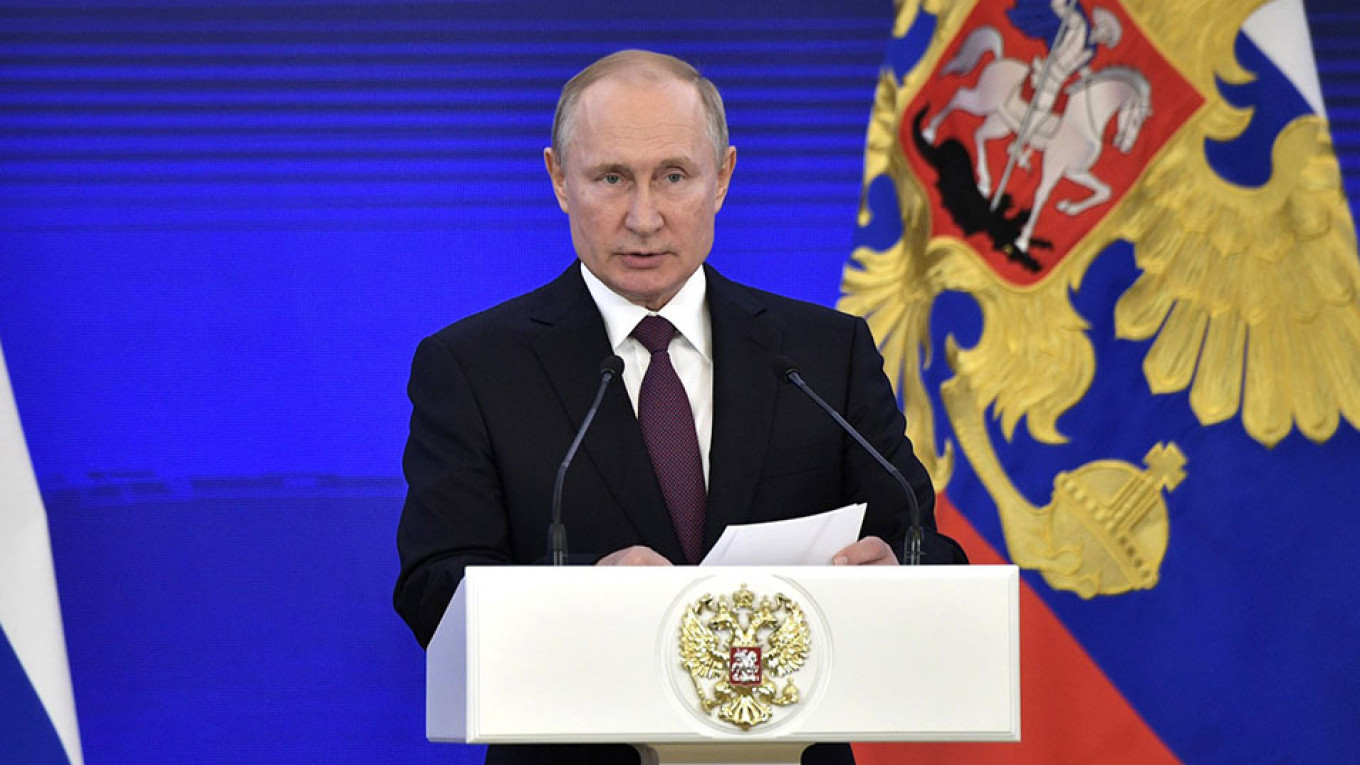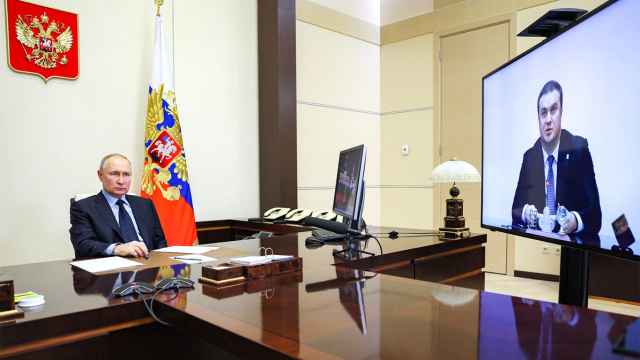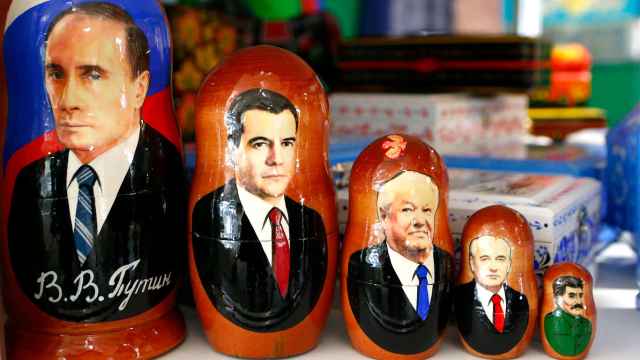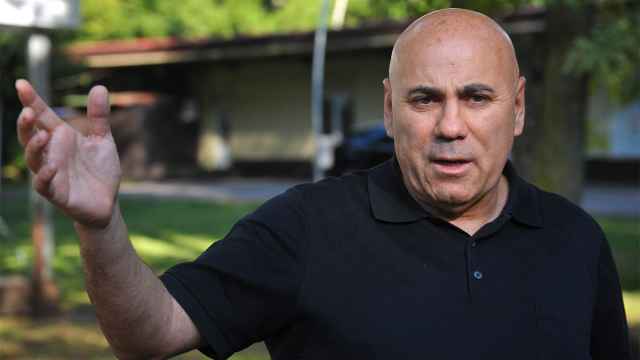President Vladimir Putin convened a meeting of Russia’s language council Tuesday, where he warned that there is a war against the Russian language, recommended replacing Wikipedia and called for the introduction of uniform language norms.
Chaired by presidential adviser Vladimir Tolstoy, the 48-member council is charged with developing state policy on protecting and promoting the Russian language abroad.
Here are four takeaways from the session.
On single language norms for government, news media and schools:
“I ask you to start working on a single corpus of dictionaries, reference books, and grammar books containing the norms of the modern literary language when it is used as the state language of Russia.”
“They should become mandatory for use by all state agencies, including government bodies, the executive, judicial, and legislative bodies, schools, and mass media.”
On replacing Wikipedia:
“It’s better to replace it with the Great Russian Encyclopedia in electronic form [...] That information will at least be reliable, presented in good modern form.”
On Bachelor’s and Master’s degrees for future teachers:
“What does that give? Does a Bachelor’s [holder] only teach lower grades while a Master’s [holder] is entitled to teach 10th and 11th grades? Is it some sort of crude scheme or is there meaning in this?”
On the ‘war’ on the Russian language:
“We’re facing — and I’d like to emphasize this — artificial, crude and at times absolutely unceremonious attempts to squeeze out the Russian language to the global periphery.”
“It’s not only entrenched Russophobes, all sorts of fringe groups and aggressive nationalists who are declaring war on the Russian language [...] Unfortunately, it’s becoming quite an official state policy in some countries.”
A Message from The Moscow Times:
Dear readers,
We are facing unprecedented challenges. Russia's Prosecutor General's Office has designated The Moscow Times as an "undesirable" organization, criminalizing our work and putting our staff at risk of prosecution. This follows our earlier unjust labeling as a "foreign agent."
These actions are direct attempts to silence independent journalism in Russia. The authorities claim our work "discredits the decisions of the Russian leadership." We see things differently: we strive to provide accurate, unbiased reporting on Russia.
We, the journalists of The Moscow Times, refuse to be silenced. But to continue our work, we need your help.
Your support, no matter how small, makes a world of difference. If you can, please support us monthly starting from just $2. It's quick to set up, and every contribution makes a significant impact.
By supporting The Moscow Times, you're defending open, independent journalism in the face of repression. Thank you for standing with us.
Remind me later.






